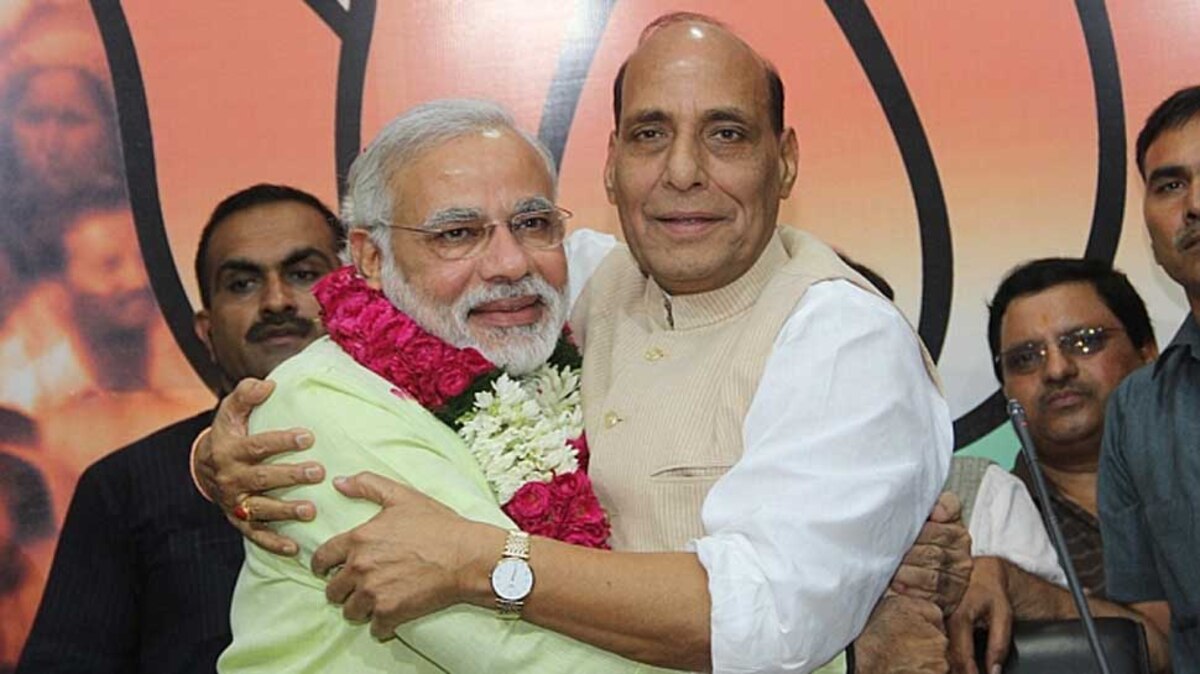
Lalit Garg
Rajnath Singh, a towering figure in Indian politics, stands as a symbol of unwavering nationalism, strategic foresight, and exceptional leadership. On the occasion of his 74th birthday, the nation reflects on the remarkable journey of a man whose simplicity, perseverance, and deep-rooted patriotism have left an indelible imprint on the political and defence landscape of India. As the country's Defence Minister, he has emerged as a steadfast architect of India’s security framework, a driving force behind a self-reliant defence ecosystem, and a guardian of national interest.
His political life is a narrative of struggle steered by principles, where national interest has always triumphed over personal gain. Rajnath Singh’s rise to prominence is not a product of mere circumstance but the outcome of years of tireless dedication and strategic insight. In the transformative era of Amrit Kaal, he has elevated India’s role in global defence by fostering indigenous capabilities and pushing India from being an importer to becoming an exporter of defence technologies. His leadership is a blend of vision and action—constructing a new India built on the foundations of self-reliance and robust defence preparedness.
At international forums, his clarity and conviction have redefined India’s stance. In a bold move at the Shanghai Cooperation Organisation (SCO) summit in Qingdao, China, he refused to endorse the joint declaration, exposing Pakistan's duplicity on terrorism. This decisive act sent a strong signal to the global community that the new India, under leaders like Rajnath Singh, will not tolerate double standards or compromise on national security. The world is witnessing a resurgent India, confident and assertive, no longer willing to be subdued.
His contributions to the defence sector have been revolutionary. Under his stewardship, India has seen a significant push for indigenisation through policies like the Defence Production Policy. By imposing a ban on the import of over 100 defence items, he has prioritised domestic manufacturing and propelled the 'Make in India' initiative to new heights. Indigenous fighter jets, cannons, and drone technologies are now at the forefront, and private industries have been encouraged to enter the defence sector, fostering partnerships with DRDO and other key institutions. His strategic vision in drone technology has not only fortified India’s military capabilities but also expanded their use in agriculture, disaster relief, and traffic management through the Rs 2000 crore drone incentive package.
Rajnath Singh's unequivocal stand on Pakistan reflects the strength and clarity of his leadership. His assertion that dialogue is possible only after Pakistan ends its support to terrorism and acknowledges its culpability shows his firm resolve. Moreover, his insistence that any talks would be centred solely on Pakistan Occupied Kashmir underscores India’s renewed strategic confidence. His leadership strikes a fine balance between peace advocacy and preparedness for retaliation, making India's security doctrine both robust and flexible.
The recent 'Operation Sindoor', carried out in response to a terrorist attack in Pahalgam, exemplifies the changed dynamics of Indian military strategy—swift, aggressive, and self-reliant. The successful joint action of the Indian Air Force and Navy, utilising indigenous weapons and drones, demonstrated the practical success of his Atmanirbhar Bharat vision in defence. It marked a significant shift from reactive posturing to proactive deterrence. Rajnath Singh has rightly said, “Peace is only an illusion, we must be in a state of war-like readiness every moment.” This philosophy now defines India’s strategic outlook.
His commitment to innovation in defence is reflected in initiatives like Innovation for Defence Excellence (IDEX) and the Technology Development Fund (TDF), both designed to harness youth talent and accelerate technological advancement. He has continually urged scientists and engineers to dominate emerging fields such as artificial intelligence and quantum computing—areas crucial to future warfare and national security. His vision ensures that India is not just keeping pace with the global defence race but leading it.
From his early days in the Rashtriya Swayamsevak Sangh and Akhil Bharatiya Vidyarthi Parishad to holding the highest positions of power—Chief Minister, Party President, Home Minister, and now Defence Minister—Rajnath Singh’s journey is a testimony to his organisational prowess, ideological commitment, and administrative innovation. His honesty, humility, and unflinching patriotism are rare traits that distinguish him as a leader of extraordinary calibre.
On this milestone of his 74th birthday, the nation does not merely celebrate an individual but honours a visionary whose life has fortified the spirit of India’s defence ideology and self-reliance. Rajnath Singh’s legacy is not only rooted in today’s achievements but extends into the aspirations of tomorrow. His life will remain a beacon of inspiration for generations to come, reminding the nation that strong leadership, rooted in values and guided by vision, is the cornerstone of a safe, self-sufficient, and sovereign India.